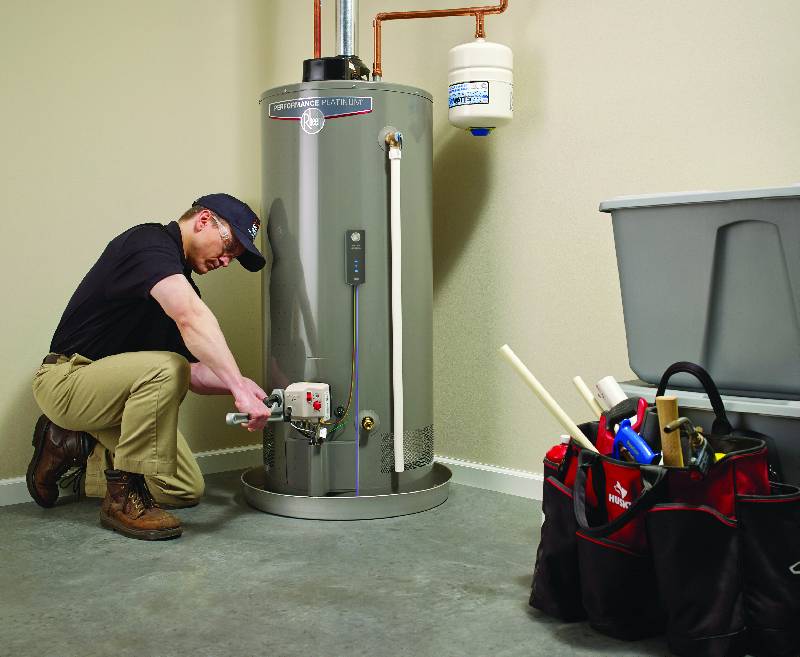Analyzing Water Heater Complications
Analyzing Water Heater Complications
Blog Article
This article in the next paragraphs in relation to Water Heater Repair and Troubleshooting is unquestionably insightful. Read it for yourself and decide what you think about it.

Imagine beginning your day without your routine hot shower. That currently sets a poor tone for the remainder of your day.
Every home requires a reliable hot water heater, but just a few recognize how to handle one. One very easy way to keep your hot water heater in leading form is to check for faults consistently and fix them as quickly as they show up.
Bear in mind to turn off your hot water heater prior to smelling around for faults. These are the water heater faults you are most likely to experience.
Water as well warm or as well cold
Every water heater has a thermostat that determines just how warm the water gets. If the water coming into your house is also hot regardless of setting a convenient optimum temperature level, your thermostat might be faulty.
On the other hand, also cold water might be because of a failed thermostat, a broken circuit, or inappropriate gas circulation. For example, if you use a gas hot water heater with a damaged pilot burner, you would certainly get cold water, even if the thermostat remains in ideal problem. For electrical heating units, a blown fuse may be the perpetrator.
Insufficient warm water
Water heaters can be found in numerous dimensions, depending on your warm water needs. If you lack hot water before every person has had a bath, your hot water heater is as well small for your family size. You must consider setting up a bigger water heater storage tank or selecting a tankless hot water heater, which uses up much less area as well as is extra sturdy.
Odd sounds
There are at least five sort of sounds you can learn through a hot water heater, yet one of the most usual analysis is that it's time for the water heater to retire.
Firstly, you ought to know with the regular seems a water heater makes. An electric heater might seem different from a gas-powered one.
Standing out or banging audios typically imply there is a piece of sediment in your storage tanks, and also it's time to clean it out. On the other hand, whistling or hissing noises might merely be your shutoffs allowing some pressure off.
Water leakages
Leaks can originate from pipelines, water links, shutoffs, or in the worst-case circumstance, the tank itself. Over time, water will certainly rust the container, as well as find its escape. If this happens, you need to change your water heater immediately.
However, prior to your adjustment your entire storage tank, make certain that all pipes are in area and that each valve works flawlessly. If you still require help determining a leakage, call your plumber.
Rust-colored water
Rust-colored water means one of your hot water heater parts is worn away. It could be the anode rod, or the storage tank itself. Your plumber will have the ability to recognize which it is.
Warm water
Regardless of exactly how high you established the thermostat, you won't obtain any kind of warm water out of a heater well past its prime. A hot water heater's efficiency may decrease with time.
You will certainly also get lukewarm water if your pipelines have a cross connection. This implies that when you turn on a tap, warm water from the heating system streams in alongside regular, cold water. A cross link is simple to spot. If your warm water faucets still pursue shutting the hot water heater valves, you have a cross link.
Discoloured Water
Corrosion is a major source of unclean or discoloured water. Corrosion within the water container or a failing anode pole could create this discolouration. The anode pole shields the container from rusting on the inside and need to be examined yearly. Without a rod or a properly working anode pole, the hot water swiftly wears away inside the storage tank. Call a professional water heater service technician to determine if replacing the anode rod will repair the issue; otherwise, change your hot water heater.
Conclusion
Ideally, your water heater can last 10 years before you need a change. Nonetheless, after the 10-year mark, you might experience any one of these faults much more consistently. Now, you need to include a new water heater to your spending plan.
How To Troubleshoot 3 Common Water Heater Problems in Twin Cities
The Water Heater Is Leaking
A leaky cold water inlet valve A loose pipe fitting A leaky temperature and pressure relief valve A corroded anode rod A cracked tank Turn Off Your Water Heater:
Shut off your gas water heater by turning the gas valve on the unit to the “OFF” position. Shut off your electric water by switching its power off at your electrical panel. Look for a two-pole breaker labeled “water heater” and turn it to the “OFF” position. Move the ball valve connected to the water heater to be perpendicular to the piping at a 90° angle. Look for the Leak:
Depending on whether the water is coming from the tank's top or bottom, you’ll want to look for the leak in different locations.
If the leak comes from the top of the tank, carefully look for water escaping from the cold water inlet valve or loose pipe fittings. Rusted hot and cold water valves can have loose connections with the tank, with water leaking out of them.
https://mspplumbingheatingair.com/blog/how-to-troubleshoot-3-common-water-heater-problems
As a fervent reader on Common Problems with Tank Water Heaters, I think sharing that article post was smart. Sharing is nice. Helping others is fun. I enjoy reading our article about Water Heaters Problems.
Precision work offered. Report this page